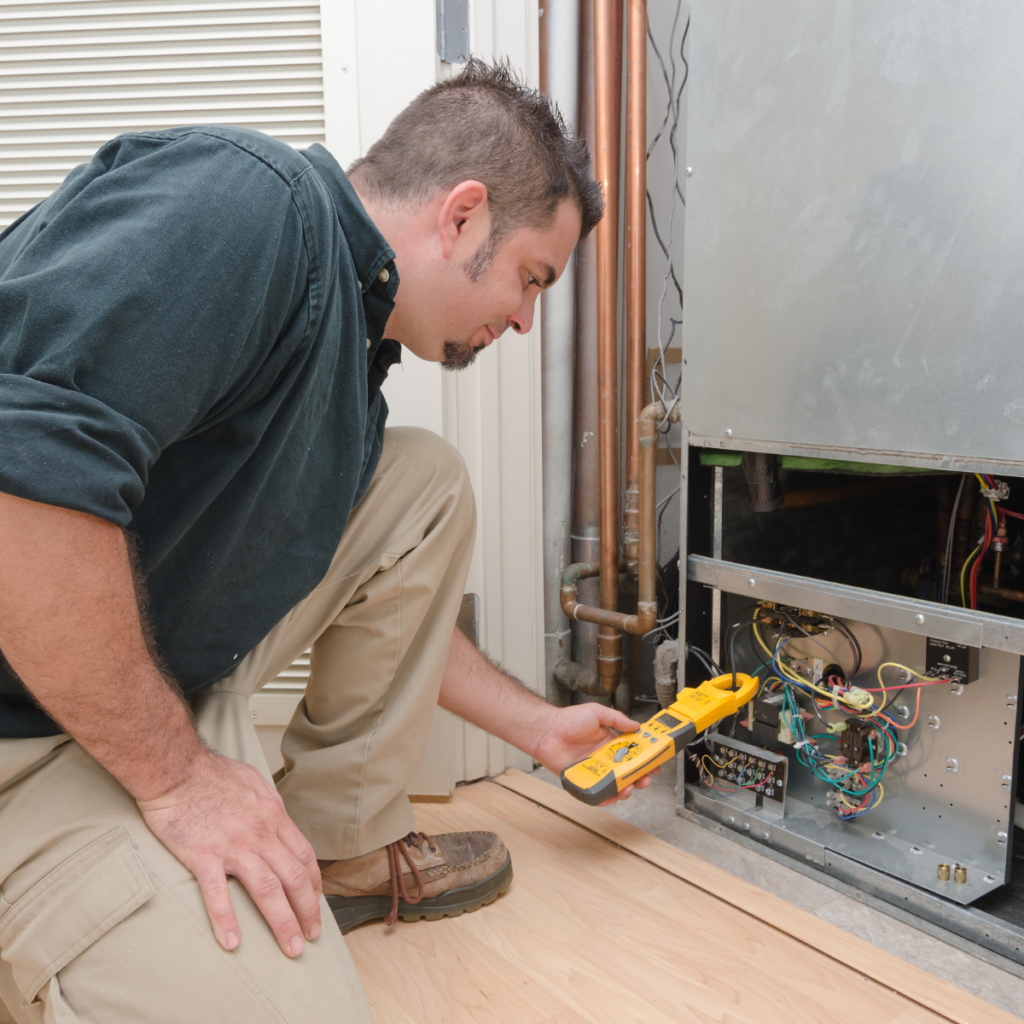AC Maintenance In Carlsbad
Regular maintenance and servicing of your air conditioning unit can mean the difference between getting the most out of your AC and having to replace it early because of accelerated wear and tear. Like a yearly checkup at the doctor or an inspection at the auto-mechanic, AC inspections and tune-ups are vital to making sure your unit runs as efficiently as possible.
At Specialized Mechanical, customer satisfaction is our number one priority. We’ll make sure you’re able to conserve energy, save on your utility bills and keep your home’s air clean and cool throughout the year. You can feel secure in the knowledge that every step of the process will be performed with the highest standard of professional workmanship and that we’ll treat your property like we purchased it ourselves.
Since maintenance promotes good health for your entire system, anytime is the best time to consider having your seasonal AC maintenance done by our trained professionals! With warm summer temperatures here in Carlsbad, you’ll want to make sure that your AC is prepared to keep you cool until winter!

Why Is Having My AC Serviced Necessary?
Air conditioning maintenance services are vital to the longevity and function of your home’s AC. It’s easy to think of your air conditioner as just the unit that sits outside of your home. In reality, your home’s HVAC system is comprised of many components that need to be cleaned and maintained.
Dirt, dust, mildew, mold and humidity are just a few of the things that can accumulate on your AC’s components and cause them to run inefficiently. Having at least one annual service can go a long way in making sure these things don’t accumulate to hazardous levels that could negatively impact the performance of your air conditioner.
In addition to the accumulation of particles, air conditioners are complex machines that require a finely tuned pressurized system to function. The refrigerant levels in your home’s AC must be regularly checked and maintained to ensure that your house is cooled efficiently. You can rest assured that your refrigerant levels will be checked with every AC tune-up in Carlsbad we provide.
What To Expect From A Specialized Mechanical Maintenance Appointment
When you schedule a maintenance appointment with our trained professionals, you can expect the highest standards of HVAC services. We make it a priority to treat your homes like they’re ours — so you can rest assured that we’ll cut no corners and provide as thorough an inspection of your unit as possible. When having your AC serviced, you can typically expect the following:
- We’ll check your refrigerant levels and ensure the line has no leaks
- We’ll inspect all electrical components and connections
- All physical components such as ductwork will be inspected for damage
- The run capacitor will be inspected for damage
- The outdoor condenser coil will be inspected and cleaned
- The indoor evaporator coil will be checked for blockages
- Condensate drainage system inspection and cleaning
- Blower component cleaning and adjustment
- Air filter inspection
Let Specialized Mechanical Future Proof Your Air Conditioner!
At Specialized Mechanical, it’s more important to us that we gain a lifelong client before we make a quick buck. Rather than slam you with replacements and repairs you don’t need, we’re committed to doing everything we can to ensure the longevity of your home’s AC so you can stay cool and your wallet will stay full. We’re determined to provide Carlsbad with the honest, reliable service our community can count on.
Make an appointment today! We’ll have one of our qualified service technicians working on your unit before you know it! Also, when winter comes around and you want to make sure your home’s heater is up to par with the coming cold, remember us, and we’ll provide the outstanding service you can come to expect from Specialized Mechanical.

